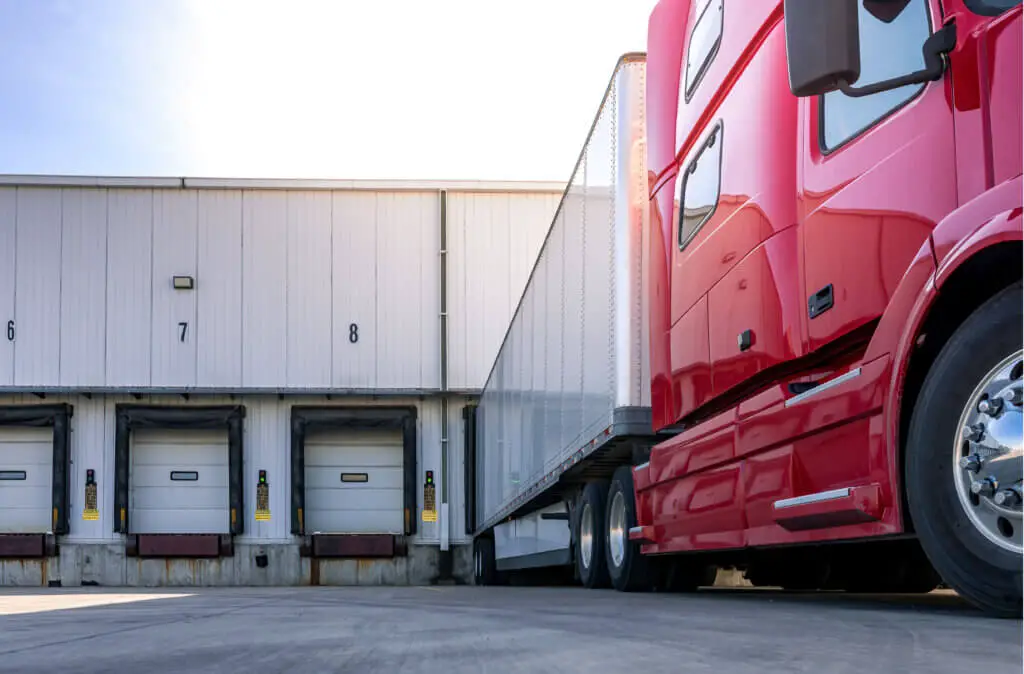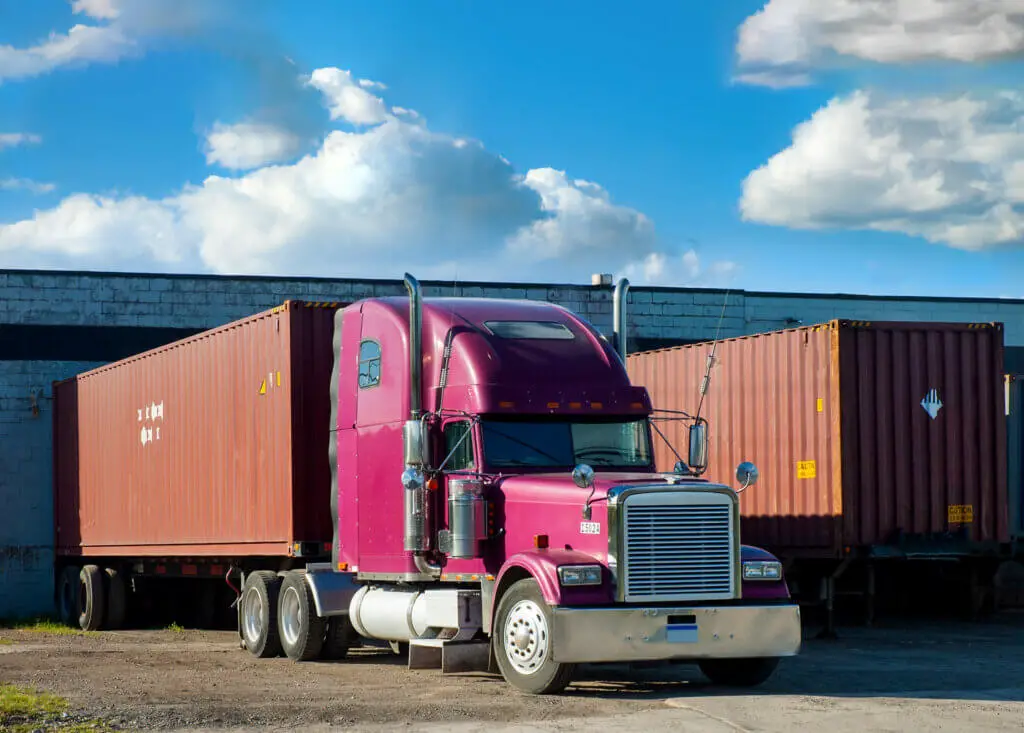In light of recent disruptive events, from the global pandemic to economic inflation and opportunities arising from a disrupted international supply chain, it has become apparent that fraud within the logistics sector has been on the rise. Today, several truckers fall victim to schemes, such as double brokering, exposing themselves to severe financial and safety risks.
As you would expect, those who engage in such illicit activities are often well-versed in the intricacies of the freight market, making it challenging for carriers to identify and stop these scams. Nevertheless, there are various methods by which freight carriers can reduce the risk of falling victim to fraud; one way is by identifying such activities. So, in this case, what s double brokering?
Understanding Double Brokering
Double brokering is a fraudulent practice in the freight industry where a shipment gets hauled by an unauthorized carrier not originally intended to carry the load. Double brokering can happen in several instances, but they all revolve around re-brokering a cargo to another trucking company.
For this scheme, a broker acts as an intermediary between a carrier and a shipper. However, instead of securing transportation services from the freight carrier, they get them from another broker. Unaware of the arrangement, the second broker provides logistics services while the first broker collects payment from the shipper, keeping a portion for themselves and the difference.
As a result of double brokering, shippers end up being overcharged, while the second broker is not paid for their services at all. It also exposes carriers and shippers with no way to mitigate any issues with transport delays. Double brokering is highly unethical, and truckers should be vigilant and perform due diligence when working with brokers to avoid being involved in such schemes.

How It Works
The logistics industry is characterized by intense competition and narrow profit margins. With the freight transport rate constantly fluctuating due to unstable economic factors, it has created a highly dynamic environment that often results in mistakes, such as double brokering.
However, more often than not, instances of double brokering are done with malicious intent. Here are some scenarios of double brokering at work;
● Carriers Taking On Too Much Work
Sometimes, carriers can become too optimistic and competitive or lack communication and planning, which may result in them taking on more freight than they can physically handle. When this happens, they are bound to encounter challenges they are unprepared to handle, resulting in delays.
In a situation like this, a carrier might pass the load off to another close contact logistics company that can fulfill the commitment. While this is not done with malicious intent, it remains a case of double brokering, as the second carrier was never part of the original agreement, and the shipper or broker is unaware of who has the freight.
Delays are part of the logistics process. When this happens, it’s best for carriers to properly notify the broker and shipper and get the proper authorization, making it a legitimate process called co-brokering.
● Brokers Without A Comprehensive Network
Brokers that lack organization or struggle to manage freight may find themselves in a situation where they do not have access to a good network of carriers to handle specific shipments. There are several reasons why this could happen, including poor planning. Insufficient resources and lack of industry connections. Whichever the case, such brokers need help to meet shipping needs and provide a high level of expectation in the logistics industry.
This scenario can also result in double brokering. For instance, brokers without significant connections with carriers that can fulfill specific requirements will pass the load to another broker to avoid being passed up for future shipments. This process also exposes everyone involved to risk and can result in severe consequences.
● Illegitimate Brokers
The most detrimental outcome that can occur with double brokering is when it is done with deliberate intent to deceive. In this case, a broker forwards a shipment to a carrier for a price less than the agreed-upon shipping rate, intending to keep the difference for themselves. Most times, the broker does not pay carriers, robbing them of the payment for the logistics services they provide.
This scheme can quickly put a new carrier out of business or place them in other severe situations in the case of a crash. It can also cause harm to the reputation and financial stability of long-serving logistics providers.
Double brokering can occur when most parties involved are in the dark regarding cargo handling, especially when a third party not originally part of the agreement is introduced into the arrangement. Lack of transparency and communication can result in mismanagement, making it easier for double brokering to occur.
Risks Associated With Double Brokering

The dangers associated with double brokering are extensive and can impact all parties involved in a shipment, even those without direct involvement in the shipping process. In the United States, double brokering violates FMCSA legislation and can result in severe consequences, including imprisonment.
However, aside from guilty brokers, most of the risk in these situations falls on the carrier. The profit margin associated with the logistics sector is usually thin, making it very challenging for freight carriers to recover from the impacts of this illegal scheme. Truckers involved in a double brokering system can expect to face the following risks;
● Financial Loss
Carriers tasked with transporting a load that has been double-brokered can face significant financial losses and expenses related to freight transportation without being reimbursed by the broker. This can be particularly damaging for small carriers who may need more resources to absorb such losses.
Similarly, the second brokers and shippers are also adversely impacted, as they may have to pay twice for the same shipment. For instance, the broker or shipper may be required to make an extra payment to the carrier to fulfill their obligations if illegitimate brokers walk off with the payment.
● Damage to Reputation
Aside from the financial implication, double brokering can severely and immediately impact trust within the logistics industry, especially among shippers, brokers, and carriers. It can have a lasting impact on a carrier’s reputation. Companies engaging in this scheme can become blocked or have their authority revoked by the FMCSA.
● Liability Risks
The risk associated with liability can be highly detrimental in the event of double brokering. When loads are double-brokered, there is typically no coverage provided by insurance. Hence, if there is a claim or accident that results in injury or death, commercial insurance will not provide liability support to the carrier. Even in less severe circumstances, freight carriers can still be held accountable for any damage to cargo in transit.
Avoiding Double-Brokered Loads

Fortunately, multiple methods can help you avoid the damaging effects of transporting a double-brokered load. There are certain factors to consider before agreeing to carry freight, which helps to make an informed decision and steer clear of potential risks.
● Check Broker’s Reputation
It’s best to verify the information and credit score of the broker you are working with to avoid the dangers of double-brokered loads. In the United States, truckers can do this by confirming their registration with FMCSA. Every carrier has the capacity to verify the broker’s number with the FMCSA to establish its reputation and authenticity.
Additionally, carriers can contact brokers and request freight details to clear up any confusion. This process helps to ensure more reliability of the load you are transporting.
● Review The Rate
After booking a load, it is essential to review the rate confirmation to identify any red flags thoroughly. One warning sign truckers should be aware of is the rate confirmation that instructs you to check in as multiple carriers. With time, you should periodically review the paperwork and ensure the bills match the stated information.
Additionally, unusually high rates are indicative of a double-brokered load. This level of attention and detail can prevent potential issues and ensure a smooth, legal, and successful transportation process.
● Build Relationships With Brokers
To further minimize the risk of encountering negative consequences associated with double-brokered loads, it is recommended to continue working with brokers that you have had positive experiences with in the past. Truckers should build trust and develop strong relationships with competent brokers, which provides peace of mind and ensures a safe and seamless business.
Conclusion
Double-brokering activities are more prevalent today due to the current state of the economy, logistics sector, and supply chain. People are scrambling to secure the necessary trucking capacity and fulfill their delivery obligations, so the desire for much-needed trucks may be greater than the urge to validate the broker.
However, carriers should always carry out strict vetting processes to spot critical indicators of a potential scheme and protect themselves and shippers from fraudulent individuals. A constant communication line between shippers, brokers, and carriers can also help build trust and raise any possible red flags. Additionally, if you have been double-brokered, you can report the offender to the Federal Motor Carrier Safety Administration. The federal organization provides a complaint database that helps to address such schemes.
